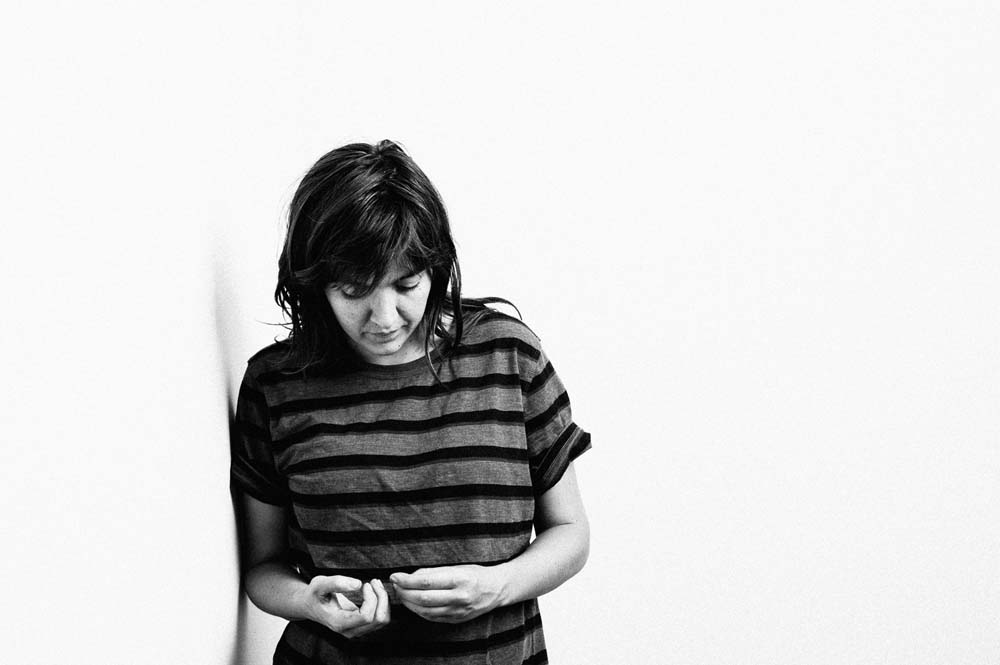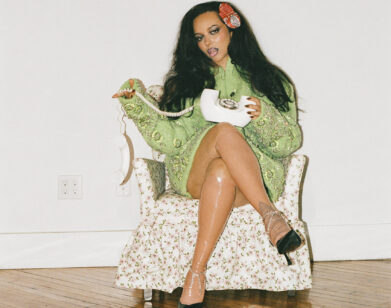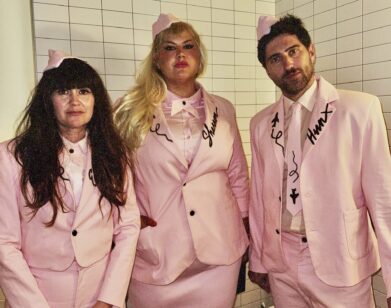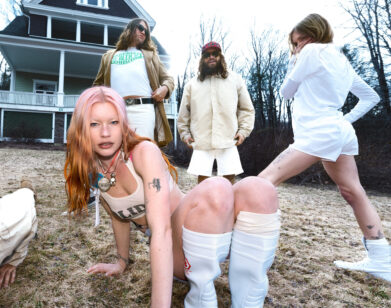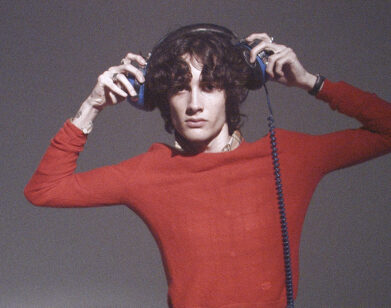Sitting and Maybe Thinking
COURTNEY BARNETT IN LOS ANGELES, MARCH 2015. PHOTS BY CARA ROBBINS.
Courtney Barnett’s music does not teleport you into another realm, but rather draws attention to the humdrum minutiae of everyday life, focusing on the dreary details and anxiety-ridden thoughts that fill the minds of disorientated youth. The 26-year-old Australian singer has a method of storytelling that’s reminiscent of legendary singer-songwriters, delivering the tales of human misadventure with pure transparency, as well as a deadpan, self-deprecating attitude, drawing comparisons to comedians like Louis C.K. Her song “Avant Gardener,” for example, describes a day in which the artist suffered a relatively humiliating asthma attack while gardening at home.
Barnett’s wry debut album, Sometimes I Sit and Think and Sometimes I Just Sit, will be released next week. After acruing a cult-like following with her previous EPs, the two pre-released singles from the LP—”Depreston” and “Pedestrian At Best”—instantly became fan favorites. Barnett’s lackadaisical and sardonic delivery are paired with darker undertones in the lyrical content (in “Pedestrian At Best” she sings, “Put me on a pedestal and I’ll only disappoint you”), creating a sonic comedy focused on the banality of life.
Earlier this month, Interview shot Barnett at her album release party in Los Angeles, where some of her own screen-prints were on view. Shortly thereafter, we reconnected to discuss all things past and present, before the artist headed to SXSW, where she is currently playing five shows in three days.
MATHIAS ROSEZNWEIG: You had your own art exhibition paired with the album launch. When did you start screen-printing?
COURTNEY BARNETT: When I finished [high] school, I went to art school, and that’s when I started really focusing on songwriting at the same time as making a lot of art. At school, they were the two things I focused on the most. It’s always been a parallel form of expression. It’s always gone hand-in-hand; I’ve always drawn as much as I’ve written. [My music and art] are both quite simplistic in their basic representations of ideas. I mean, it’s basic line drawing, I guess…I dropped out of art school, so I’m not good enough at explaining art.
ROSEZNWEIG: The album features entirely new songs, while many artists repeat tracks from EPs. Can you talk about this decision?
BARNETT: It’s really exciting. I’m really proud of it. There was never a doubt that I wouldn’t put any of those same songs on. Like, I’ve already released those songs. They have a home on the EPs. I didn’t see the need to include them just because they seemed popular. It’s about making a new collection and exploring new ideas. It was a really good process, bringing all new stuff to the table.
ROSEZNWEIG: Why do you think so many people connect to your music, and what type of people are they?
BARNETT: Over the last couple of years, we’ve gotten more attention and we’ve been forced to think about these things, which I never really pondered before. I think it’s a simple kind of connection. People connect with things that they are familiar with or that they have similar emotions or feelings for, and a lot of the stuff I sing about is quite relatable. To answer your question about the people, the people are always completely different, which is really cool. Young and old, male and female, places all over the world…
ROSEZNWEIG: Do you find your personality to be different than your music or are they one in the same?
BARNETT: I think that’s pretty spot on—the songs are true to me. It’s all pretty much true stuff.
ROSEZNWEIG: That being the case, the music you put into the world is a really authentic glimpse into your life. Do you ever feel like there are things you don’t want to share?
BARNETT: I think [those things] makes themselves clear to me. I try not to think about it and try not to censor my own thoughts, because that kind of defeats the purpose of expressing yourself. If something does come up that’s too personal…I don’t know. I think it depends on the moment and it makes itself obvious somehow.
ROSEZNWEIG: Are you ever bothered by the “slacker” genre that people put you in?
BARNETT: I’m not sure because I never know what people mean when they say it. [The album] feels like a slightly different vibe from the two EPs, like a step up. I feel like I’ve learned some things—I’ve learned how to play guitar a bit better and written some better songs. I don’t really think about labels and stuff because I’m too busy writing songs.
ROSEZNWEIG: Obviously, putting out your first album is a landmark in your career, but on the other hand, how did it affect your personal growth?
BARNETT: A lot. You learn a lot. I feel like this last year, I’ve grown 10 years in maturity—or no, not maturity, but just life. The process of making any art is about exploring parts of yourself and the world around you. I don’t know for what purpose—just to be more in touch with yourself spiritually or physiologically—but it’s definitely a really interesting and eye-opening process.
ROSEZNWEIG: Did you have any specific goals in mind while recording?
BARNETT: For me, the goal is the creation. That’s the main, not hurdle, but end result. You know, making an album that I’m proud of, which I’ve done. It’s such a vulnerable thing. For the last fucking year, since we recorded in April, even in the studio, I had days of going, “I hate this song!” and then the next day I was like, “I love this song!” And then the month afterwards of mixing and listening to it and making sure I still liked it, I had weeks of going, “I fucking hate it! I need to re-record it. It’s terrible.” And then the next week I’m like, “It’s actually great! You’re being too hard on yourself.” It was this back and forth thing and I’ve got very high expectations of myself. You don’t know if it’s based on other people’s opinions, what you’re thinking, or if you’re going completely mental.
SOMETIMES I SIT AND THINK AND SOMETIMES I JUST SIT IS OUT MARCH 24 VIA MOM + POP. FOR MORE ON BARNETT, VISIT HER WEBSITE.

